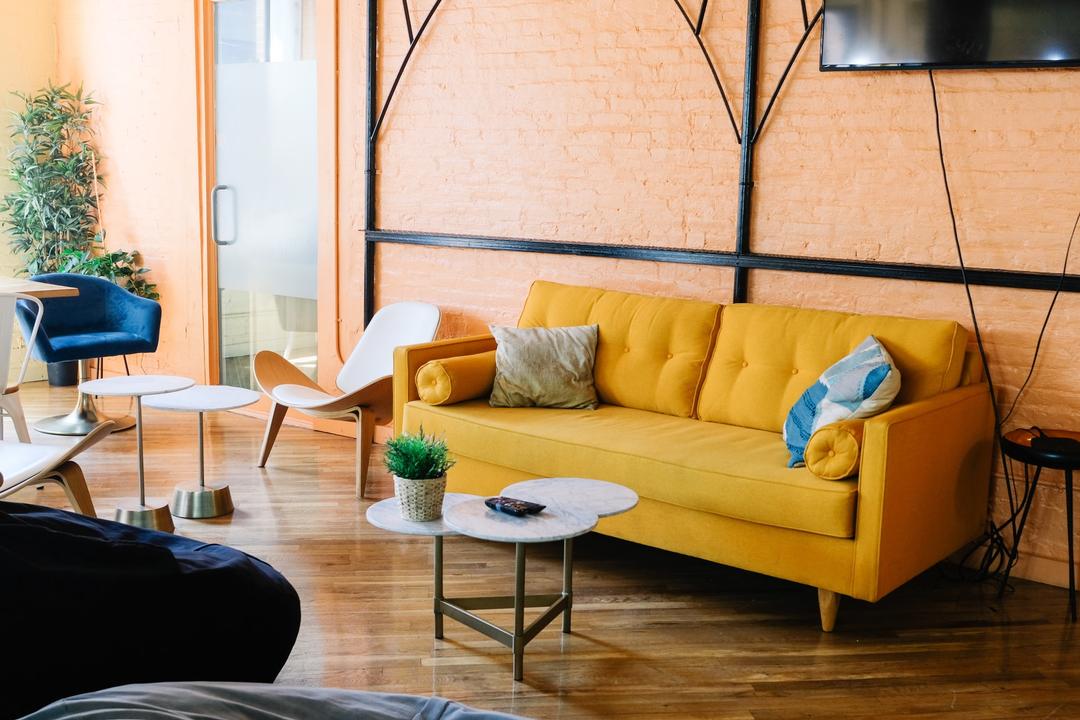Buying a property, especially for first-time buyers, can be overwhelming and add to existing stress levels. To manage your real estate projects more easily and minimize unexpected issues, seeking advice from experts in the field is essential. Indeed, real estate brokers, notaries, mortgage brokers, and building inspectors offer invaluable expertise and guidance.
Despite access to these resources, inexperienced buyers frequently make avoidable mistakes that can negatively impact their real estate project. To prevent you from repeating these errors, we’ve compiled a list of the most common errors made by first-time homebuyers.

1. Not knowing your credit score
Many people dream of being homeowners, but achieving this goal requires thorough preparation and strong financial readiness.
As a first-time buyer, you’ll likely need to finance your home purchase through a loan from a financial institution, which necessitates meeting credit eligibility criteria. Indeed, prior to approving your loan application, banks will evaluate your credit report to assess the risks. If you have a poor credit history or a low credit score, your loan might be denied, putting your home-buying journey on hold.
To avoid potential disappointment after making an offer, it's wise to assess your credit status before beginning your property search. Agencies such as Equifax and TransUnion allow you to directly access your credit report for this purpose.
Additionally, obtaining a mortgage pre-approval offers clarity on your borrowing capacity. It confirms your creditworthiness and establishes the maximum amount you can borrow for your real estate project. This step ensures you can confidently pursue properties within your financial reach.
2. Not working with a real estate broker
As mentioned at the beginning of this article, real estate is a complex field, underscoring the importance of working with a real estate broker when buying a property. While it's possible to proceed without one, it presents additional challenges. A real estate broker offers comprehensive expertise in:
- Industry dynamics
- Neighbourhood specifics
- Required documentation
- Negotiation strategies
Therefore, having a broker alongside provides invaluable support throughout the buying process. In Quebec, this service is typically free for buyers, as commissions are generally divided with the seller’s broker from the property sale.

3. Choosing the first house you visit
If you’ve already fallen for the first house you visited, it’s important not to prematurely halt your search. Doing so could lead to overlooking better options!
Instead, keep exploring and visit multiple properties. Take the opportunity to ask thorough questions during each visit, allowing you to assess the pros and cons of each property. This approach will either solidify your initial preference for the first house or steer you towards another property.
4. Choosing the first mortgage lender you meet
Another common mistake among new buyers is settling for the first mortgage lender they come across. What they often overlook is the benefits of exploring multiple lenders and comparing their offers. This approach allows buyers to secure a competitive mortgage tailored to their unique situation.
It’s essential to invest time to gather comprehensive information to make an informed decision. Consider using the services of a mortgage broker who can efficiently compare interest rates and loan conditions on your behalf. This not only saves time but also provides you with expert guidance in negotiating with financial institutions.

5. Spending all your savings
While it may seem like the right move to use all your saving for the down payment of your dream home, have you considered the additional costs of purchasing a property and how your finances will look afterwards?
Beside the down payment, buying a property incurs various expenses like furnishing, renovations, closing costs, moving expenses, and more. It’s essential to budget meticulously for these expenses to avoid the financial strain.
It's wise not to exhaust all your savings on the real estate purchase. Keeping some money aside for unexpected expenses and daily living costs is essential for maintaining financial stability post-purchase.
6. Doing everything last minute
Believing you can initiate and finalize your home-buying process within a week is unrealistic. The buying process typically takes several weeks, or even months. Gathering the necessary documents, completing paperwork, taking essential precautions, obtaining financing... Rushing at the last minute not only adds unnecessary pressure but also increases the risk of making mistakes and rushing decisions.
Patience is key in navigating this significant investment. Allowing ample time ensures thoroughness and reduces the chances of encountering obstacles along the way. After all, buying a home is one of life’s most significant investments; it deserves careful consideration and patience throughout the entire process.

7. Buying a house that’s too small
Choosing a smaller house can be appealing initially, especially if you’re envisioning a cozy space for you and your partner. However, it's crucial to consider whether it will meet your future needs adequately. If you plan on expanding your family, working from home, or other lifestyle changes, opting for a slightly larger house with more bedrooms and a more spacious yard may be more practical.
When planning for the future, it's essential to ensure your property can accommodate your lifestyle comfortably. Consider factors like kitchen size, the number of bedrooms, and available storage space when making your decision. It's better to prioritize having enough room for comfortable living rather than potentially regretting your choice shortly after moving in.
8. Skipping steps
While it’s important to envision your future needs when buying a house, it’s unrealistic to expect your first home to be a luxury estate with five bedrooms and three garages. For most buyers, climbing the real estate ladder is a gradual journey.
Beginning with a more affordable first property allows you to build equity. When you decide to sell it in the future, you can use the proceeds to finance a larger or more upscale home. This step-by-step approach enables you to progressively work towards your dream home over time.

9. Not taking advantage of first-time buyer grants
When buying your first property, taking advantage of available financial assistance can significantly benefit you. There are several grants and tax credits designed to support first-time homebuyers, such as the First-Time Home Buyer Incentive and the First-Time Home Buyers’ Tax Credit, offered by both the Government of Canada and the Government of Quebec. These credits provide substantial tax relief, potentially up to $626 federally and $705 provincially.
Additionally, many municipalities, including Quebec City with its Accès Famille program, Montreal and Sherbrooke offer financial aid programs that can provide valuable assistance to homebuyers, although they may not exclusively target first-time buyers.
To determine if you qualify for these homeownership grants, it's recommended to contact your local municipality or the area where you plan to purchase property.
10. Staying trapped in your lease
If you're preparing for your first real estate purchase, chances are you're currently renting under a lease agreement with your landlord, which included various rental and financial obligations.
When you find the perfect house but still have several months left on your lease, navigating your options can be complex. Should you resign yourself to paying rent for both places simultaneously? Or should you consider breaking your lease, despite potential penalties?
Exploring options like transferring the lease to another tenant or subletting the apartment can provide viable solutions. These steps allow you to focus fully on your new real estate purchase without the burden of paying double rent.
In such scenarios, the best course of action is to negotiate with your landlord. Exploring options like transferring the lease to another tenant or subletting the apartment can provide viable solutions. These steps allow you to focus fully on your new real estate purchase without the burden of paying double rent.
Are you a first-time buyer looking to buy a house?
XpertSource.com can help you find a real estate broker. When you tell us about your project, we put you in touch with qualified resources for free. Simply fill out our form (it only takes a few minutes) and we will connect you with professionals.

